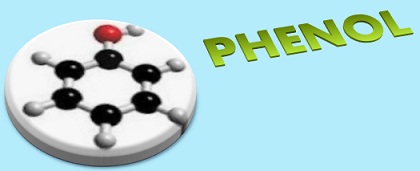Textile recycling – rPET-rPP – Hydrogen 13-05-2023 - Arhive
Textile recycling – rPET-rPP – Hydrogen
-Lenzing AG: Lenzing and partners launch Austria’s largest textile recycling project
- Lenzing, ARA, Salesianer Miettex, Caritas and Södra joining forces to drive forward the transition to circularity
- Joint project involving the collection, transport and sorting of used textiles for processing to make pulp and fibers
- Pioneering project with a strong social component
The Lenzing Group, a world-leading provider of specialty fibers for the textile and nonwoven industries, has taken another big step towards achieving a circular future in collaboration with several partners. Austrian companies and not-for-profit organizations, including Lenzing’s logistics and sorting partner ARA (Altstoff Recycling Austria AG), the textile service provider Salesianer Miettex and Caritas, as well as the Swedish pulp producer Södra have joined forces to collect used household and clothing textiles for reprocessing to produce pulp and, ultimately, new lyocell and viscose fibers.
In this pilot project, used textiles collected by Salesianer Miettex that are not suitable for reuse will be passed on to ARA, before being delivered to Caritas for sorting by hand at a recycling plant. Textile recycling – rPET-rPP – Hydrogen
The Caritas recycling facility provides secure employment to more than 70 people with disabilities. After the sorting process, the textiles will be delivered to Södra for recycling and processing to produce OnceMore® pulp. This method is a world first in the industrial recycling of textile waste made from blended fibers. Lenzing will then apply its innovative REFIBRA™ technology to produce new lyocell and viscose fibers.
“One company alone cannot solve the pressing problem of textile waste. Proactive partnerships such as these allow us to make progress and accomplish real systemic change,” says Sonja Zak, Head of Textile Sourcing & Cooperations at Lenzing Group. “We work hard to make our industries more sustainable and promote the transformation of the textile business model from linear to circular. Continued action across the whole sector will be necessary to facilitate this transition.” Textile recycling – rPET-rPP – Hydrogen
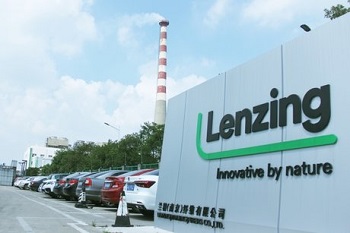
-Technip Energies (Paris) and Casale SA (Lugano, Switzerland) have formed a new alliance to jointly license oxidative reforming-centered technologies, namely autothermal reforming (ATR) and partial oxidation (POx) technologies, for the blue hydrogen market, as per the company’s announcement
ATR is a process that generates syngas containing hydrogen, CO, and CO2, and when combined with carbon capture technology, it becomes a cost-effective means for low-carbon hydrogen that is suitable for larger-scale facilities. Under this partnership, Technip Energies and Casale will act as co-licensors of the technology and will provide a Process Design Package (PDP), exclusive equipment, and entire plants. The ATR-based solution could achieve up to 99% carbon capture rate to decarbonize hydrogen facilities. Technip Energies’ two hydrogen centers of excellence, situated in Claremont CA, US, and Zoetermeer, NL, will collaboratively execute PDP for ATR-based blue hydrogen projects with Casale.
Loic Chapuis, SVP Gas & Low Carbon Energies of Technip Energies, remarked, “We are thrilled to announce this partnership with Casale, which will enable us to provide cutting-edge ATR-based solutions for the blue hydrogen market. By capitalizing on our worldwide leadership in hydrogen, having delivered over 30% of the installed capacity globally, with our combined exclusive technologies, we believe that we can offer advanced and economical solutions that can satisfy our customers’ needs.
ATR-based solutions will complement T.EN’s exclusive SMR-based solutions, enabling us to provide a complete range of solutions in the low-carbon hydrogen market. We anticipate collaborating with Casale to foster innovation and scale up hydrogen production decarbonization.” Textile recycling – rPET-rPP – Hydrogen
Federico Zardi, CEO of Casale SA, stated, “We are pleased to form this partnership with Technip Energies, a worldwide leader in hydrogen plants. This partnership has the potential to provide the market with advanced solutions for worldwide decarbonization, leveraging our extensive experience in developing and utilizing advanced ATR and POx technologies with several ATR-based mega production units already supplied, coupled with Technip Energies’ technological expertise in the hydrogen arena.”
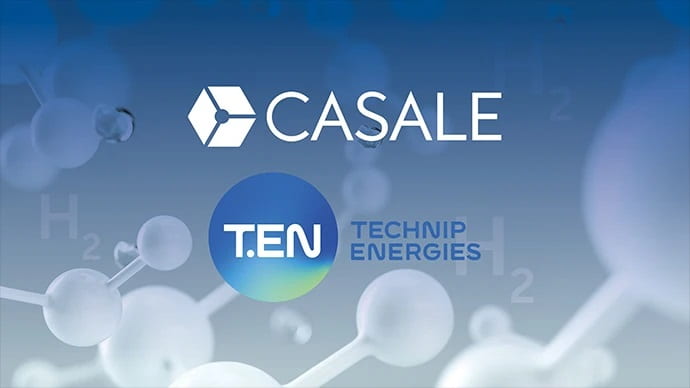
-Lummus Technology Announces Partnership with Texplore to License HDPE Technology
Agreement expands Lummus’ portfolio and continues track record of collaboration with industry leaders and innovators
Lummus Technology, a global provider of process technologies and value-driven energy solutions, and Texplore Co., Ltd. (Texplore), a wholly owned subsidiary of SCG Chemicals Public Co., Ltd. (SCGC), announced a commercial cooperation agreement to license and market EXCENE™, Texplore’s high-density polyethylene (HDPE) technology. Leadership from both companies recently participated in a signing ceremony in Bangkok, Thailand.
“Licensing Texplore’s HDPE technology builds on our recent success of expanding Lummus’ comprehensive technology portfolio,” said Leon de Bruyn, President and Chief Executive Officer, Lummus Technology. “Lummus has a long history of partnering with industry leading companies like SCGC to leverage our collective strengths and bring innovative technologies to market.” Textile recycling – rPET-rPP – Hydrogen
“We are honored to join hands with Lummus Technology in this collaboration, as we see it as a perfect fit for both parties to synergize our strengths and experiences towards a successful long-term partnership,” said Dr. Suracha Udomsak, Executive Vice President and Chief innovation Officer of SCGC. “Today’s CCA signing is just the beginning of a new chapter in our journey, and we are excited to explore further steps together to boost our sustainable market and bring value to our clients.”
Under the agreement, Lummus will exclusively license Texplore’s EXCENE™ HDPE technology. Lummus will also provide engineering design for plant construction, services for plant commissioning and start up, and additional lifecycle services, while Texplore will provide their EL-CAT™ catalyst supply.
Well suited for high-capacity production, HDPE is a thermoplastic polymer that is one of the most versatile plastic materials.
HDPE has a high strength-to-density ratio and is used to make a wide variety of products including large-diameter pipes and films, and more. Textile recycling – rPET-rPP – Hydrogen
EXCENE™ is a proven proprietary HDPE process commercialized by Texplore.
The technology offers HDPE for the use in variety of high-end applications and quality products. It is also reliable and simple process and operation.
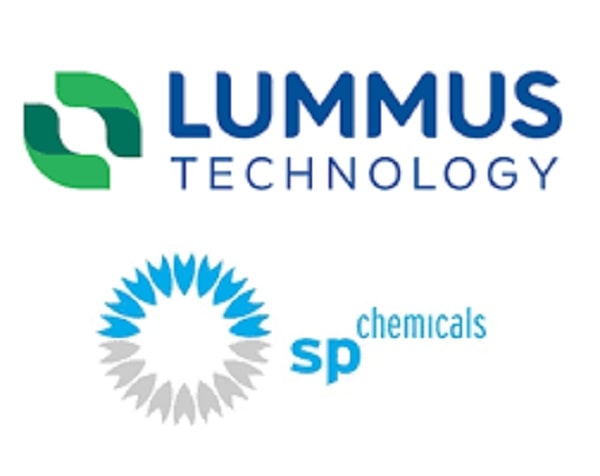
-Verdeco expands with eye on evolving materials landscape
Equipment is being installed in Verdeco’s new operation in South Carolina, putting the PET recycling firm on track to bring an additional 90 million pounds of capacity on-line this summer. Rob Bindner, Verdeco CEO, told Plastics Recycling Update that the Greenville build is part of a long-term strategic vision that emphasizes material innovation.
With packaging manufacturers moving fast to bring more recycled material into different applications, the plastics processor sees opportunity in offering testing solutions and other services that could open new doors in the use of recycled content.
“We believe that, ultimately, for our customers to achieve their sustainability goals and targets, you’ve got to have innovation through material science and not just solely rely on feedstock,” he said. Verdeco also has facilities in California and Indiana, each with an annual capacity of 60 million pounds. Textile recycling – rPET-rPP – Hydrogen
The new facility is in Greenville, S.C. and will become the company’s headquarters.
The location was selected for its proximity to Verdeco’s customers and to several major ports, allowing for easy feedstock movement.
Bindner added the Greenville area offers a variety of upsides that help the company attract and retain employees.
“From an academic standpoint, a climate standpoint, a cost of living standpoint, South Carolina – and Greenville in particular – really has the opportunity to accomplish all that in one location,” he said.
Accelerating sustainability The 217,000-square-foot facility in South Carolina will pelletize hot-washed PET flake and also provide a testing laboratory that will help the company develop customized solutions for customers quickly, Bindner said.
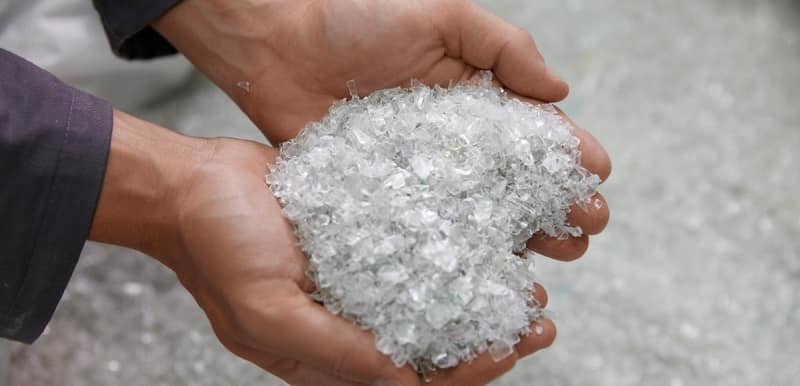
-The recent trend towards rPET ought to be perceived as amplifying the impact on the environment because rPET has a greater carbon footprint than rPP
Plastics Europe’s Life Cycle Assessment brought attention to this when they compared the carbon footprint of a variety of recycled plastics, revealing that recycled high-density polyethylene (HDPE) and recycled PP have a carbon footprint 25% lower than recycled PET.
NextLooPP Europe is driven by the imperative to keep our limited carbon budget in mind, and is experimenting with two key grades of its superior rPP. The first of these is a high-purity recycled food-grade PP that has been purified to meet food-contact standards. The second, named INRT, is an innovative high-quality polymer created specifically for packaging that does not pose any odor or migration issues.
These applications include packaging for cosmetics and low volatile organic compound automotive uses. Textile recycling – rPET-rPP – Hydrogen
In the past, the recycling of polypropylene in the US has been a missed opportunity, but NextLooPP is currently aiming to replicate this success in the Americas.
The company is inviting expressions of interest while fine-tuning a game-changing venture, the NextLooPP Americas, which is set to launch in the third quarter of 2023. This venture will be customized to meet the unique requirements of the Americas.
According to Science Direct, in 2018, about 2 billion tonnes/2.2 billion tons of municipal waste was collected in the US, while the global recycling rate was 18% (362 million tonnes/399 million tons). The remaining waste was sent to composting/energy recovery, landfill, and the surrounding environment. Among all waste plastics, PP is one of the most converted polymers, with a market share of approximately 20% in 2018. However, it is also one of the least recycled (3 to 5%), mainly due to its use in non-bottle packaging such as cups, tubs, and trays.
The Recycling Partnership’s 2020 State of Curbside Recycling report observed that PP is not separated as a distinct polymer in the US. It is mainly collected curbside and sorted in materials recovery facilities. Many MRFs focus on sorting PET and HDPE because these polymers have a higher market demand and are more widely recognized.
The same report suggests that a single-family household in the US may produce as much as 17 pounds of PP yearly, making it a higher generation rate than both natural and colored HDPE, with total annual PP tonnage generated by US single-family households estimated at 827,000 tons annually. Textile recycling – rPET-rPP – Hydrogen
As the NextLooPP Americas venture, set to launch in Q3 of 2023, gears up to tackle these challenges, it is worth noting that the recovery of PP will not only reduce waste and our dependence on virgin PP but also offer increased economic benefits and job opportunities. Most importantly, it will contribute to keeping our carbon budget within a sustainable range.

-China the lynchpin for global polyolefins demand recovery – LyondellBasell exec
China will be the lynchpin for global demand recovery in polyolefins, a LyondellBasell executive said on Wednesday.
“Ultimately, I think China is the lynchpin here. It’s the largest market in the world and the biggest importer of polymers in the world, even with all the capacity they’re adding. If that demand comes back, that will move the needle,” said Ken Lane, executive vice president, Global Olefins & Polyolefins at LyondellBasell.
Lane spoke at the Goldman Sachs Industrials and Materials Conference.
China will not be able to invest enough to become self-sufficient in polyethylene (PE) and thus will continue to be a net importer in the long term, he noted.
“I don’t see them building enough capacity and frankly I don’t see them getting the returns on these investments, so they’re going to slow their investment levels down. They’re going to continue to import 15-20m tonnes of PE a year for the foreseeable future,” said Lane. Textile recycling – rPET-rPP – Hydrogen
China is adding capacity at around 6%, about the level of demand growth, he noted.
“That’s not far off what they’ve grown at in the past. They just have to get out of the COVID lockdowns they’ve been in… If you’ve been trained to stay inside and not consume anything, it’s hard to come out of that shell. And it’s taking longer than we thought,” said Lane.
“Getting back to 6% demand growth in China is easy, typically after a low growth year,” he added.
Inventories in China are at low levels as buyers have been cautious, buying only what they need, the executive noted.
The overall demand recovery in polyolefins and other chemical markets has been weak so far this year, with a potential inflection point being pushed out to later in the year.
“It is definitely more moderated than what we hoped at this point, so its probably later in the year rather than… we were hoping in Q2 that we would see more improvement,” said Lane. Textile recycling – rPET-rPP – Hydrogen

-The contract price of phenol in Europe in May increased by EUR86 per tonne
The contract price of phenol in Europe increased by EUR86 per tonne in May as a result of an increase in the contract price of benzene by EUR89 per tonne, which was slightly offset by a slight decrease of EUR3 per tonne in energy costs, ICIS said.
The contract price of phenol is currently EUR2,136-2,166 per tonne with free delivery (FD) in Northwest Europe (NWE).
The European benzene contract for May increased by EUR89 per tonne, reaching its highest level since August last year.
Earlier it was reported that the total production of phenol and acetone in China decreased by 11.89% month-on-month to 503.2 thousand tons in April 2023. The data showed that in April, the country produced 312 thousand tons of phenol and 191.2 thousand tons of acetone.
According to the ScanPlast review, in January-February 2023, the total estimated consumption of PC granulate in the Russian market (excluding imports and exports to Belarus) increased by 32% and amounted to about 20.5 thousand tons against 15.6 thousand tons a year earlier. Textile recycling – rPET-rPP – Hydrogen
